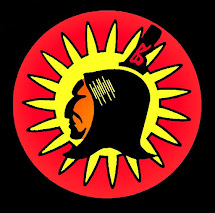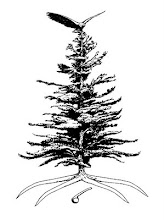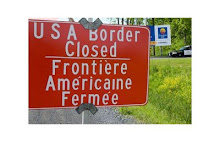Tuesday, July 17, 2012
Senecas Clash With Police Over Tax Ruling (July 17, 1992)
A tax war between Seneca Indians and New York State grew more divisive today as Indians dropped burning tires off a highway overpass and clashed with state police.
Thirteen protesters were arrested and at least four state troopers were injured, including the force's commander in western New York.
About 200 Indians began burning tires and other debris about 7 P.M. Wednesday to protest taxes the state wants to impose on the sale of gasoline and cigarettes at reservations.
About midnight, protesters started throwing burning debris from an overpass onto the Gov. Thomas E. Dewey Thruway, which borders the Cattaraugus Indian Reservation 30 miles southwest of Buffalo. 30-Mile Stretch Closed
State troopers in riot gear cleared protesters from the overpass and put out the fire, said Maj. George Meyer. Thirteen protesters were arrested.
Troopers closed a 30-mile stretch of the Thruway around the reservation when the confrontation began. The highway reopened at 6 A.M. today.
During the protest, Maj. Bruce Roloff, commander of Troop A in western New York, was hit in the head with a two-by-four, Major Meyer said. Major Roloff was listed in fair condition at Erie County Medical Center in Buffalo.
Three other troopers and three protesters were slightly injured when protesters drove cars into the crowd, the police said.
More than 200 extra troopers were sent to the reservation from around New York state today, said Sgt. Gregory Lang. Dozens of state police cars lined the Thruway near the reservation this afternoon, and troopers stopped and questioned drivers entering the reservation.
The protests were prompted by a ruling last week by the Appellate Division of State Supreme Court allowing New York to tax sales of gas and cigarettes to non-Indians on reservations.
Karl Felsen, a New York tax spokesman, said the state loses about $50 million a year because of tax-free sales of gas and cigarettes by Indians. Retailers near reservations say Indian vendors have an unfair advantage.
Centuries-old treaties prohibit taxing sales to Indians. But Indians say those treaties also apply to sales by Indian vendors to non-Indians.
Calvin John, the Seneca Nation president, said he would organize a committee to decide how to fight the tax ruling.
Robert Batson, deputy director of the state Indian relations office, said officials from his office also were in touch with Seneca leaders but could do little to control the violence.
"That's like the United Nations trying to control Sarajevo," Mr. Batson said.
Subscribe to:
Post Comments (Atom)














![-[]-[]-/\-[]-[]-](https://blogger.googleusercontent.com/img/b/R29vZ2xl/AVvXsEjLoXmKO8PJVQ5pZ2q7GX7nFKw8H2tb28dxt-o10FUBNtOGszWhWoLB7tgjtMgtISpuSxNW3fcDxfuSS2DqojsdjNJ1lVggyUS374PnzsDbOhk4ukvtTunFQcyfkckZeBzcLbri4LDYN_E/s214/29-03-A-voice-from-the-Akw-.jpg)





No comments:
Post a Comment